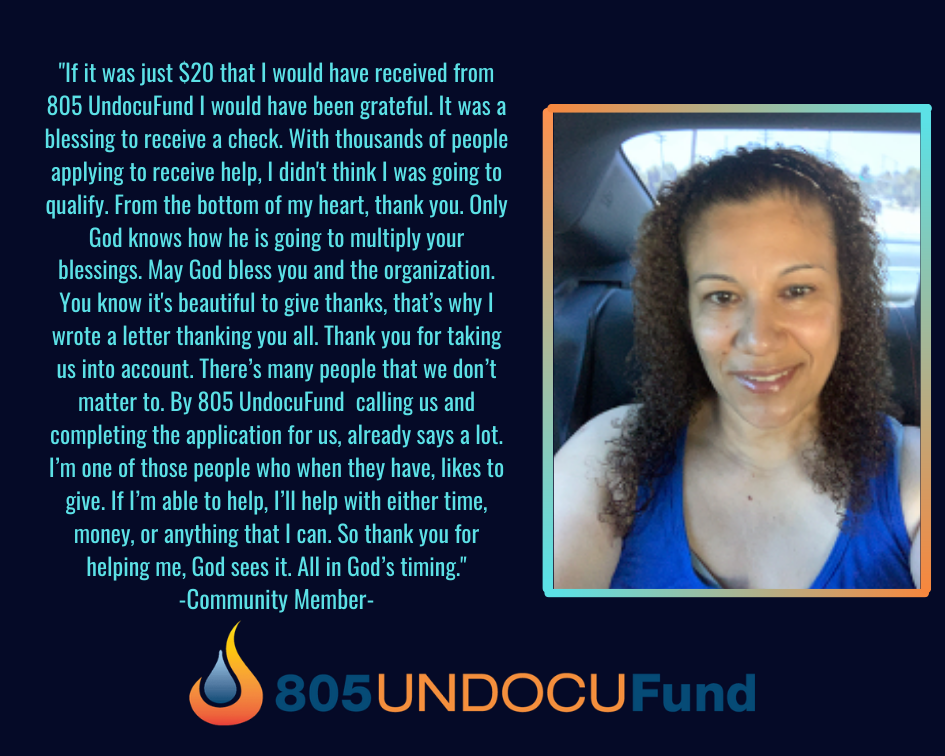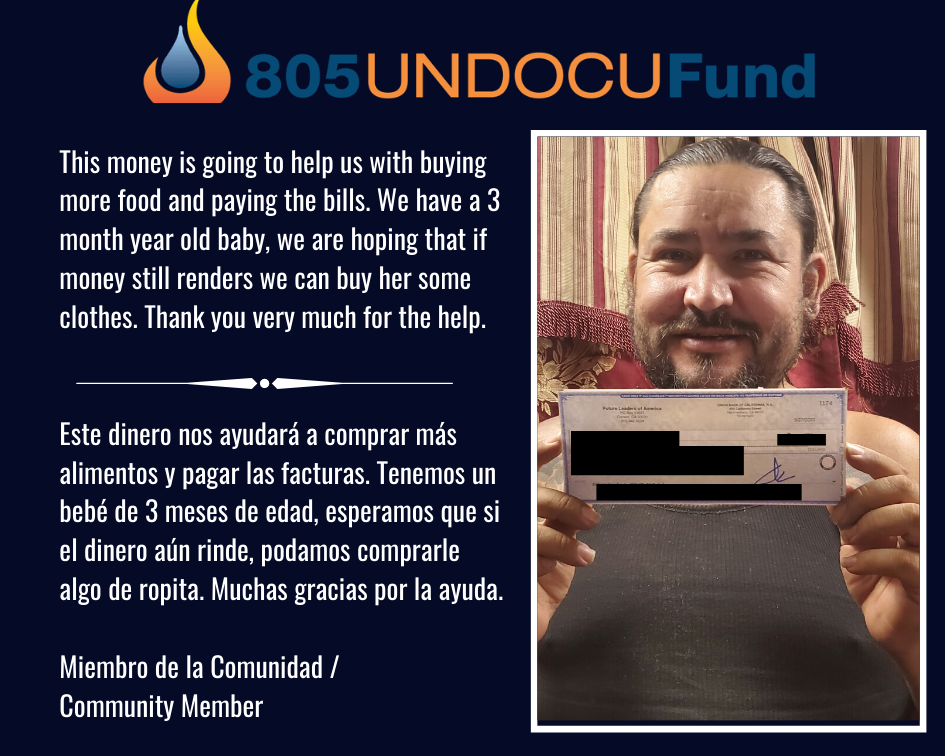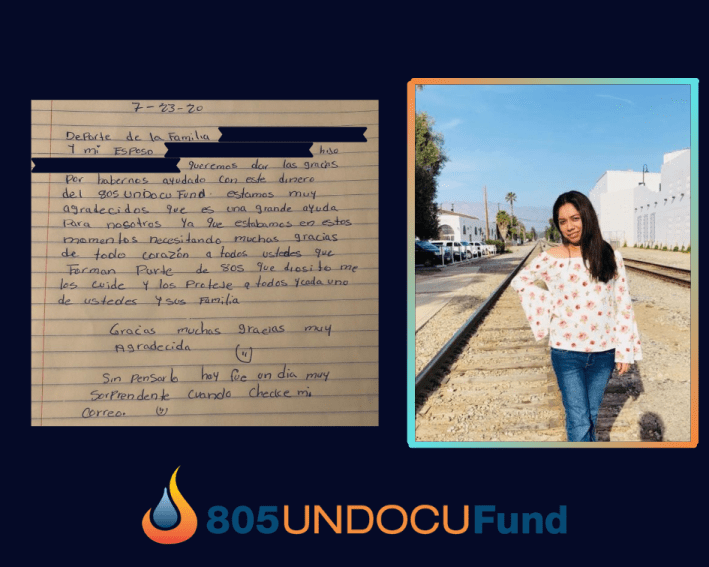According to the Fund for Santa Barbara and the University of Southern California (USC) “Central Coast Regional Equity Study” nearly 90,000 undocumented immigrants live in Santa Barbara and Ventura Counties. When wildfires and other disaster occur, undocumented workers in key regional economic sectors such as agriculture, services, hospitality, child and elder care are not eligible for federal disaster relief nor for state and federal social safety nets due to their immigration status. When COVID 19 hit in 2020, they were also not eligible to receive cash assistance from the stimulus bills passed by the federal government.
805 UndocuFund clients lived two simultaneous experiences: one which excluded them from the wider federal disaster response and recovery effort, and another one that not only provided financial relief but also showed the commitment of grassroots volunteers, community partners, philanthropy, and more than 1,000 individual donors to include them in disaster recovery.
We do what we do because we’ve learned on the ground what more and more academic studies and policy makers across the countries acknowledge: immigrants are highly vulnerable to disasters. This is due to:
Socio-economic factors:
Lack of equitable access to these state and federal social safety net services that help communities bounce back after disaster:
805 UndocuFund clients lived two simultaneous experiences: one which excluded them from the wider federal disaster response and recovery effort, and another one that not only provided financial relief but also showed the commitment of grassroots volunteers, community partners, philanthropy, and more than 1,000 individual donors to include them in disaster recovery.
We do what we do because we’ve learned on the ground what more and more academic studies and policy makers across the countries acknowledge: immigrants are highly vulnerable to disasters. This is due to:
Socio-economic factors:
- Low-wage jobs
- Language accessibility barriers
- Immigration legal status
- Housing and economic insecurity
- High density housing
Lack of equitable access to these state and federal social safety net services that help communities bounce back after disaster:
- Unemployment benefits when faced with loss of work due to disruption.
- Health Access for 26- 50 bracket
- Access to federal financial disaster relief and social safety net.
- Long-term state disaster cycle policy frameworks that ensure equitable access to resources to recovery from disaster.
Thomas Fire Client Stories"I lost my job in Montecito due to the disaster. First the city was evacuated due to the fire, and now the mudslide. I've been out of a job for three weeks - there's no jobs out there. Although we do not live in Montecito, we have also have been affected by the natural disaster. We have three kids, rent an apartment and we have to pay for insurance, and other bills; and at this time, we don't have income to pay for these bills. We are thankful for any assistance in maintaining our household during this difficult time."
Carlos | Goleta, CA |






